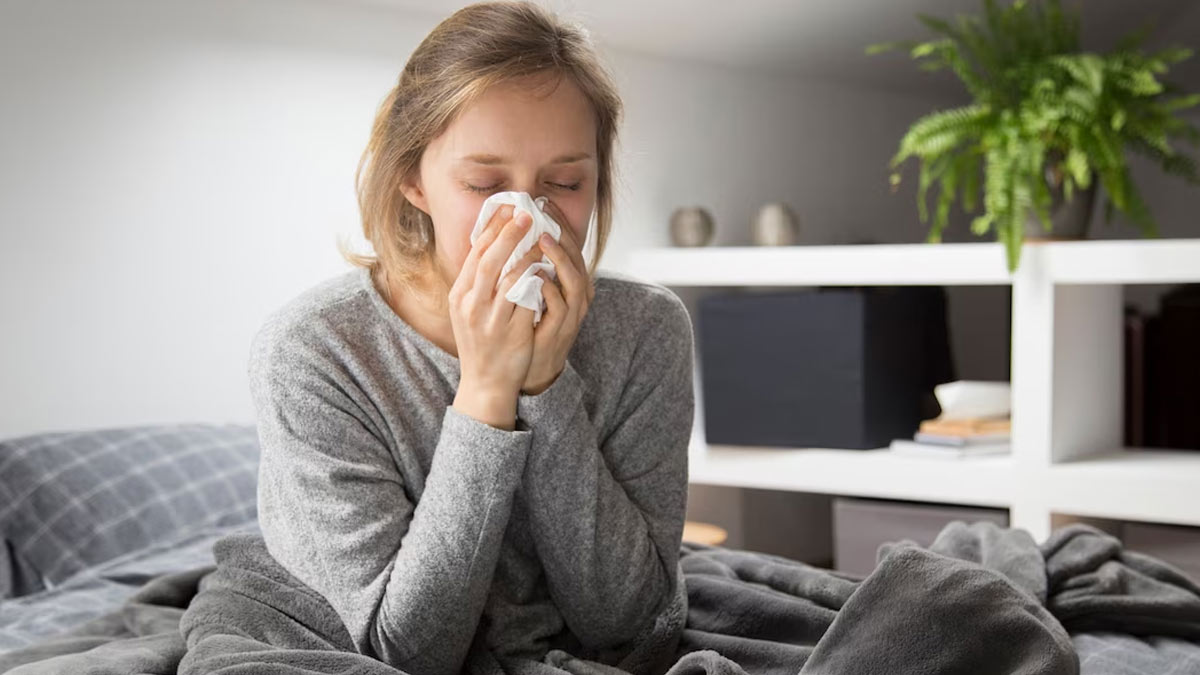
We all know the importance of a good night's sleep for our well-being. However, sleep deprivation also has unexpected consequences beyond fatigue and grogginess. Among the lesser-known effects of sleep deprivation is the aggravation of nasal symptoms, leading to a stuffy nose and increased sneezing.
Table of Content:-
As per a study titled Behaviorally Assessed Sleep and Susceptibility to the Common Cold, published in the US Journal ‘Sleep,’ shorter sleep duration was associated with increased susceptibility to the common cold.
How Does a Lack of Sleep Cause Stuffy Nose

While talking to the team of OnlyMyHealth, Dr Sheetal Radia, ENT & Head Neck Surgeon, Wockhardt Hospitals, Mira Road, shared that sleep deprivation can affect nasal functioning in various ways:
Suppresses Immune Response
Sleep deprivation may cause the immune system to become less effective against infections and allergens. During deep sleep, the immune system releases proteins vital to the body's defence against infections and inflammation. Sleep deprivation disrupts this essential immune response. Consequently, the body may react with uncontrollable sneezing and a stuffy nose in response to environmental allergens or irritants.
Also Read: Why Are You Sneezing In The Morning? Know Causes And Treatment
Nasal Inflammation
Lack of sleep can trigger inflammation in the nasal passages, making them more susceptible to irritation and congestion. The body's natural defence mechanisms, like nasal mucus production, may become imbalanced, leading to a stuffy or runny nose.
Sleep Apnea
Sleep apnea, a sleep disorder characterised by interrupted breathing during sleep, can also contribute to nasal congestion and sneezing. In sleep apnea, the airways may become partially blocked, leading to mouth breathing, dryness, and nasal discomfort upon waking.
Increases Stress Levels
Sleep deprivation often leads to increased stress levels, which can worsen nasal issues. Elevated stress hormones may trigger inflammation and nasal congestion, intensifying sneezing and other discomforts.
Tips to Get Relief from Nasal Congestion and Excessive Sneezing

Nasal congestion and constant sneezing can seriously downgrade your quality of life by chipping away your health, social life, and work life. If you suffer from a stuffy nose and sneezing regularly, and tissues and nasal sprays are your best friends, it’s time to take some diligent measures to free yourself from these shackles. Dr Radia suggested the following lifestyle tips that you should start practising right away:
- Prioritise Quality Sleep: Aim for seven to nine hours of uninterrupted sleep each night to allow the immune system to function optimally and reduce inflammation.
- Maintain a Clean Environment: Regularly clean your living space to remove allergens or irritants that can trigger sneezing and nasal congestion.
- Use Air Purifiers: Invest in an air purifier to help filter out airborne allergens and pollutants, promoting cleaner indoor air.
- Stay Hydrated: Drinking fluids can help keep nasal passages moist, reducing the severity of congestion or nasal irritation.
- Nasal Irrigation: Use a saline nasal spray or neti pot to rinse the nasal passages. Nasal irrigation is miraculous for hydrating your nasal passages and relieving congestion.
- Avoid Allergens: Different allergens trigger immune responses in different people. Identify the allergens you are particularly susceptible to, and avoid triggers that worsen sneezing and nasal congestion, such as pollen, dust, or pet dander.
- Steam Inhalation: Inhaling steam from a bowl of hot water or using a humidifier can help ease nasal congestion and soothe irritated nasal passages.
- Elevate Head During Sleep: Use extra pillows or elevate the head of your bed to promote better nasal drainage while sleeping.
- Avoid Smoking and Secondhand Smoke: Smoking and exposure to secondhand smoke can worsen nasal congestion and respiratory issues.
- Consult a Healthcare Professional: If symptoms persist or worsen, consult a healthcare professional to determine the underlying cause and explore additional treatment options.
Also Read: Frequent Congestion In Nose Could Be Sign Of Deviated Septum, Know Causes And Risks Of This Deformity
Importance of Quality Sleep for Overall Well Being
Remember, while these measures can help manage sneezing and nasal congestion, getting sufficient and quality sleep remains vital. Poor sleep affects energy levels and mental clarity, exacerbating nasal discomforts and allergy symptoms. Prioritising restful sleep, maintaining a clean sleep environment, and seeking appropriate medical advice can help alleviate these issues and promote overall well-being.
Also watch this video
How we keep this article up to date:
We work with experts and keep a close eye on the latest in health and wellness. Whenever there is a new research or helpful information, we update our articles with accurate and useful advice.
Current Version